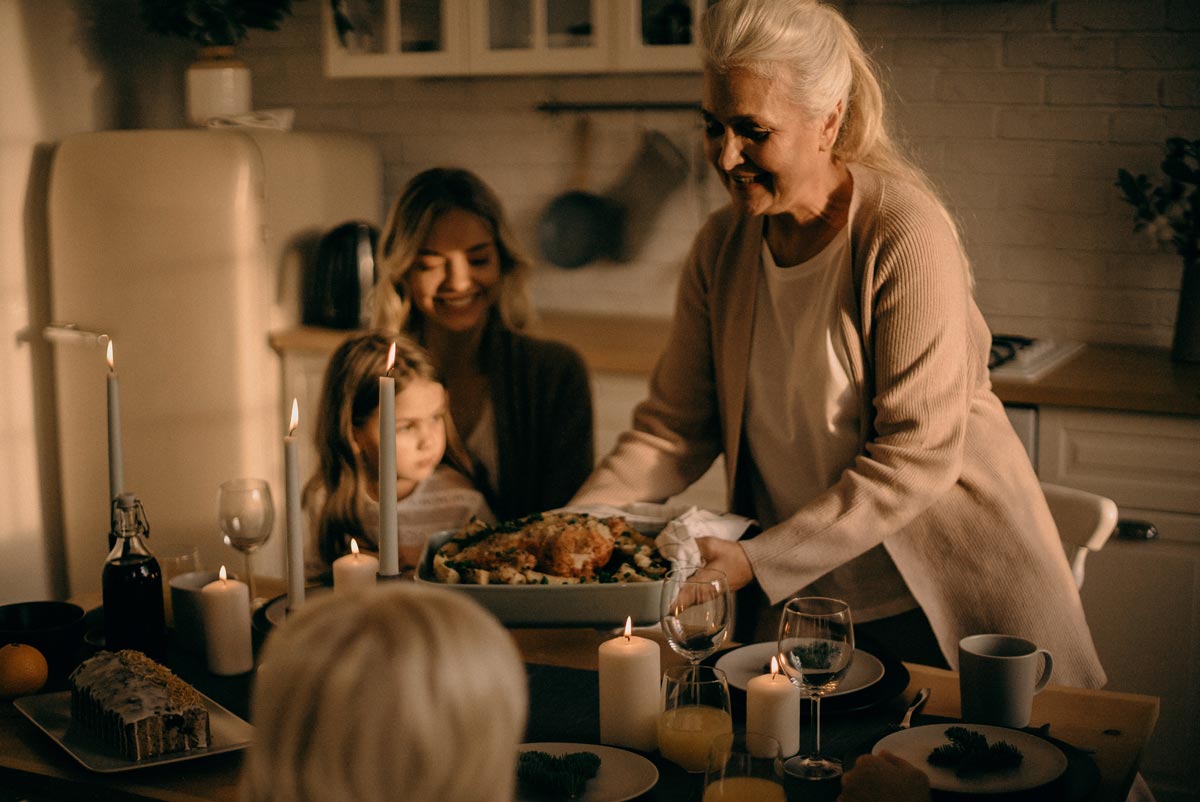Home Care Assistance is Changing the Way the World Ages. This is the latest installment of our “How To” series, where we lay out smart and easy-to-understand advice on navigating the aging process.
“We’re happy that she lives autonomously and has her independence, but after the year we’ve had, it’s sometimes hard to know if living on her own is better or worse,” explains Alexandre. “She’s alone so much of the time. My sister and I both work out in the world, and have small children. We’re worried that any kind of visit might expose my mum to germs. At the same time, we’re trying to balance everything and help her feel cared for and engaged, especially now that it’s the holidays.”
That struggle is playing out for family caregivers right across the country – especially those whose parents or grandparents require more than a little extra care on a daily basis. For Alexandre and Martine, their mother is socially distanced, but autonomous. For many others, the intricacies of family caregiving are a much bigger daily responsibility.
Even before the pandemic began, the Canadian Institute for Health Information found that unpaid caregivers (think adult or even aging sons and daughters) provide additional support to 96% of individuals receiving long-term home care. Well before COVID-19 came into play, one in three of those unpaid caregivers cited ongoing distress. That includes everything from feelings of anger or depression, to the all-out inability to continue with caregiving activities.
It’s a heavy burden for folks already 10 months into this global health crisis. Layering in the added emotional stress of finding safe ways to navigate the holidays while helping the most vulnerable among us to somehow feel special, or at least somewhat normal, could be a real tipping point in a fraught situation.
“We’re thinking of stopping by in turns at my mum’s apartment to at least speak to her from outside her patio door. I figured if we go in the morning, and my sister goes in the afternoon, that could spread out some social contact for her from a safe distance,” says Alexandre.
Given that seniors (or anyone) who live alone in Quebec is entitled to a visitor, getting creative and finding ways to safely stop by may be an option. The key, though, is balancing a loved one’s emotional needs with any family caregiver’s own responsibilities and exhaustion level.
We’ve culled through Home Care Assistance Montreal guides from holidays past, and adapted a handful of traditional tips to help you meet a senior’s needs while avoiding caregiver burnout in this COVID-19 reality. These four guiding principles may help the holidays feel special as we get set to turn the page on a very long year:
- Keep it simple. Whether you’re visiting one-on-one to decorate a senior’s living space, or just chatting over a cup of tea: you don’t have to go over the top to spread cheer. A beautiful wreath can stand in for a full-on Christmas tree, and achieve a similar effect. Arranging for some special holiday take-out meals can be a great way to show someone they’re loved, without adding endless cooking to a strained caregiver schedule. Focusing on healthy options from local restaurants can ensure you’re delivering a nutritional boost and good spirits at the same time. Bottom line: unless do-it-yourself projects are your form of self-care, cut yourself some slack. Find easy-button and premade options for decor, food, and tokens of appreciation. A well-executed thought will go a very long way.
-
Tee virtual time together up for success. Dropping off a cozy new blanket and slippers or stuffed animal can transform a favourite chair into a special Zoom station. Bring children and grandchildren into the Facetime mix, but do so in a way that your loved one can follow. Prep kids in advance to talk one at a time, speak loudly, and give their loved one a chance to respond. Better yet, think up questions about holidays past that you can ask a senior during the call, giving them a chance to share and reminisce. Even in regular times, holiday gatherings shouldn’t extend much longer than two hours for an older attendee. Keep the duration of your catch-up in mind as you plan a way to safely connect this year.
-
Adapt plans if you’re caring for someone with dementia. Too much stimulation can be overwhelming for anyone with dementia. Choose fewer activities, and allow enough flexibility for your loved one to stick to their schedule, and rest. If you’re looking for in-person activities, wrapping presents while you visit at the kitchen table is an easy way to engage someone with dementia in a holiday tradition. Make them in charge of handing you the paper instead of expecting them to wrap the whole present – and be sure to express gratitude for their effort.
- Put yourself on the list. If you’re balancing caregiving for a family member with a host of other priorities in the context of a global pandemic, well, it’s fair to say: you need a break. Find time to sit down and don’t feel guilty about it. The world’s going to need you again come January. However you find ways to relax a bit this holiday, remember: that’s important, too. And you’re doing a great job.
Closing thoughts
We’ve never been here before. That’s particularly true for family caregivers working overtime to balance the needs of a loved one against the backdrop of holidays happening in the middle of a global pandemic. Keeping it simple, planning ahead, adapting for dementia, and remembering to take care of yourself are equally important. Here’s to brighter days ahead.
*Alexandre and Martine’s names have been changed to respect their privacy preferences.

